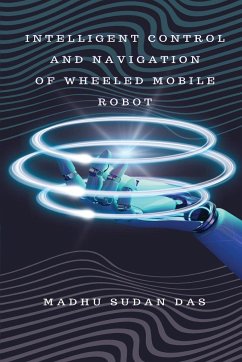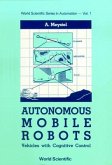Intelligent control and navigation of wheeled mobile robots is a field of robotics that focuses on developing algorithms and techniques to enable a robot to autonomously navigate through an environment while achieving specific goals or objectives. Wheeled mobile robots are robots that move on wheels and can be used for a variety of applications, such as search and rescue, surveillance, exploration, and logistics. The primary challenge in intelligent control and navigation of wheeled mobile robots is to design algorithms that allow the robot to perceive its surroundings and make decisions based on that perception. This requires the integration of various sensors, such as cameras, lidar, and sonar, to provide the robot with information about the environment, such as obstacles, terrain, and landmarks. The control system of the robot then processes this information and generates control signals to the motors that drive the wheels, enabling the robot to move in the desired direction and avoid obstacles. The control system can be based on various techniques such as PID control, fuzzy logic, neural networks, and reinforcement learning. Navigation algorithms are also critical in enabling wheeled mobile robots to navigate autonomously in complex environments. These algorithms use the information provided by the sensors to create a map of the environment, plan a path to the target location, and adjust the robot's motion to stay on the planned path. Intelligent control and navigation of wheeled mobile robots also involves addressing other challenges such as localization, which involves determining the robot's position and orientation in the environment, and obstacle avoidance, which involves detecting and avoiding obstacles in the robot's path. Intelligent control and navigation of wheeled mobile robots is an important area of research that has applications in a wide range of industries and fields, including manufacturing, transportation, agriculture, and healthcare. Mobile robot control and navigation in an unknown environment are important areas for research. In recent years, wheeled mobile robots (WMRs) have become more versatile in their application to various tasks. These robots can be used in various domains, including industrial, military, hospitals, schools, offices, health care, agriculture, cooking, and aerospace. Mobile robot faces different challenges in path tracking or navigation., path planning, obstacle avoidance, and localization. These are challenging jobs for mobile robots. Significant works are being carried out by the researcher to solve these challenges. The traditional controller cannot handle these challenges itself. These challenges can be solved by using an intelligent controller or a combination of a classical and intelligent controller.








